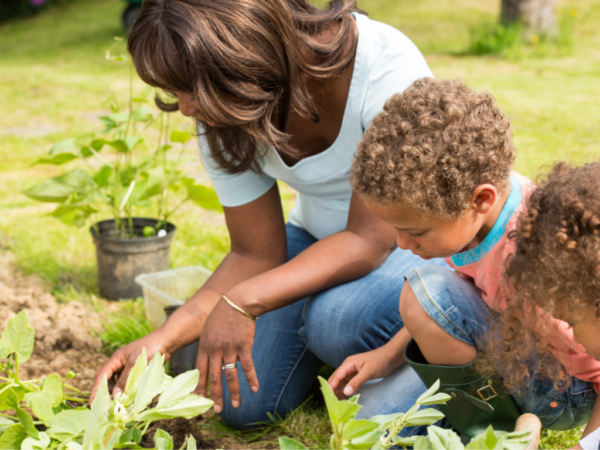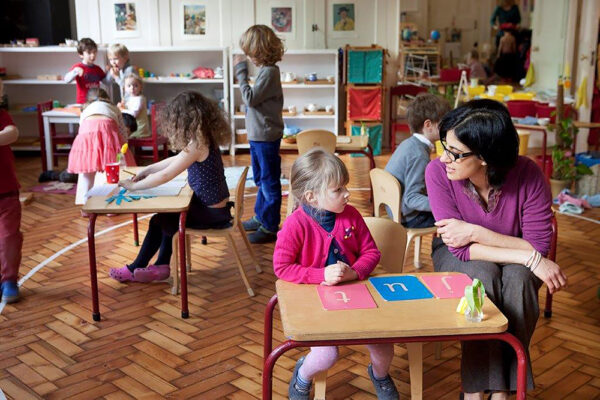
In a recent survey by YouGov, teachers reported more than half (54%) of children starting reception are not “ready for school”. In contrast, 89% of parents surveyed said they felt their child was ready, suggesting a huge difference of opinion about what is needed to be “ready for school”.
The teachers surveyed were very clear that they expected a few academic or school-focused skills such as holding a pen, recognising letters and numbers, and having some familiarity with nursery rhymes. However, they also identified confidence, independence, and social skills, citing examples such as children verbalising their own needs; dressing, eating, and using the toilet independently; playing, taking turns and sharing; following instructions; and being able to concentrate for short periods.
The majority of parents recognised the importance of these elements, however nearly a fifth didn’t think their child needed to be “toilet-trained” or able to eat independently. Over a quarter didn’t think their child should be able to share or play with other children; and nearly half didn’t think they needed to be able to hold a pencil.
The research also revealed how widespread this lack in skills is among children entering reception classrooms – nearly every teacher said they had at least one child in their class lacking some of the skills identified and the situation had worsened for every aspect of school readiness compared to 2022 figures.
So why are children failing to acquire these skills? The impact of the pandemic is cited but teachers also pointed to parents spending more time on electronic devices and less time reading with their children; lack of parental support from public services and the wider community; and variable quality of early years settings. Another key reason was lack of parent understanding of what “school readiness” means or simply not seeing it as an area of parental responsibility.
The Twittersphere reacted rapidly to the research, shouting that “schools need to be ready for children, not children ready for school”. Of course schools need to meet the child where they are and provide what is developmentally appropriate to each child – and this must be unique since development is unique and children do reach milestones at different points – so in this way schools do need to be “ready”. However, it is more nuanced than this – it is about ensuring the interplay between education, child and parent provides the perfect ground for the child’s development.
One senior teacher participating in the research said “I really don’t think parents have any idea [of the developmental milestones expected by Reception]. There is so little given to them before they start school, the most in-depth information is around the two-year developmental check but then there’s a huge gap between that and starting school.” Clearly many parents lack understanding of developmental milestones. But more importantly, they do not know what is expected until it is too late to support the child’s development with ease. Even if they do know what the milestones are, they don’t necessarily know how they as parents can best support their children to reach them.
In Montessori there is an emphasis on preparing adults, be they teachers or parents, to support children’s development. From birth onwards, we honour children’s drive to do things for themselves so that they can become self-confident, independent thinkers and problem-solvers.
Parents can support this in many ways with their children including:
- Encourage movement from a young age, for example you could place toys such as a rattle just out of a baby’s easy reach so they have to move to get it. As your child gets older, avoid using the buggy when they could walk and take them to large spaces where they can move freely and climb and balance.
- Whenever possible, avoid always fitting your child into your schedule – they need to time to play in a self-directed way at their own pace, using their own ideas.
- Enable your child to help with household tasks such as hanging out washing or tidying up: this will support independence and confidence. Show them how to do it and let them try.
- Step back and let children do things by themselves as much as possible – from putting shoes on to cleaning themselves after eating – again, show them how to do it and then let them try.
- Take time to listen when your child is trying to communicate with you – even from a very young age – and respond even when your child cannot say words for themselves – they will learn these from watching and hearing you say them.
If we support our children in this way from the start, we can expect our four-year-olds to be able to eat without help, put clothes on and use the toilet independently; play with others by sharing and taking turns; talk in simple sentences, follow simple instructions and be able to sit down and focus. It is what both our teachers and children have a right to expect.
Parents can access free information on Montessori approaches and easy-to-understand advice on the developmental areas related to motor skills, language, independence and self-discipline via the Aid to Life initiative developed by the Association Montessori Internationale. At the Maria Montessori Institute we offer online Montessori in the Home courses on child development in the home environment.








